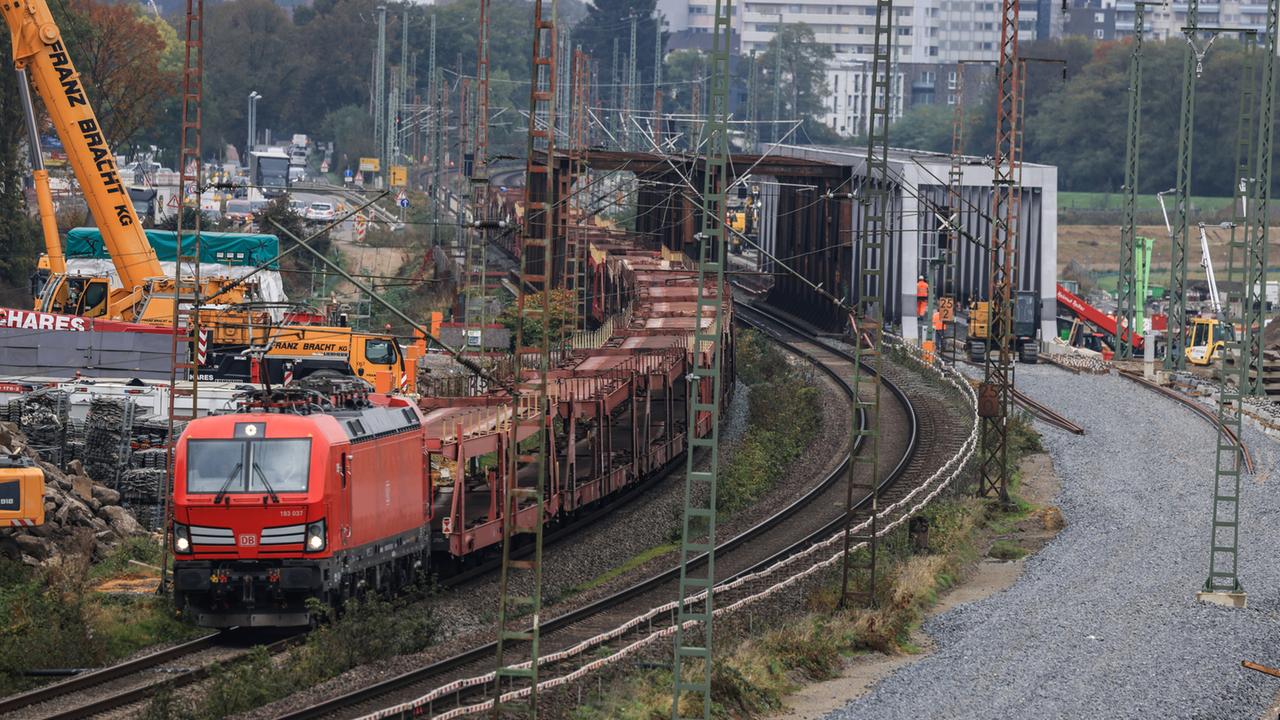There has been a long-term railway construction site on the Lower Rhine since Friday (November 1st, 2024). For 80 weeks, the route from Oberhausen via Emmerich to the Netherlands will not be passable at all or only to a limited extent.
The fact that construction sites hinder rail traffic is now almost everyday life for commuters and travelers. The railway describes what is coming up on the Lower Rhine as an “unprecedented construction volume”. For a full 80 weeks, the route from Oberhausen in the Ruhr area via Emmerich to the Netherlands will not be passable at all or only to a limited extent. The long-term construction site will affect commuters, long-distance traffic and industry along the important freight route from Friday.
The approximately 73 kilometer long route on the Lower Rhine is a section of the European freight transport corridor from the North Sea port of Rotterdam to Genoa on the Mediterranean. In the 1990s, the participating countries Germany, the Netherlands, Switzerland and Italy decided to expand and modernize the route – and thus connect important economic locations to the large seaports by rail.
However, the previously only two-track line with partly outdated technology has long since reached its performance limits. The Netherlands completed its section in 2007: the 160-kilometer-long Betuwe Line from Rotterdam to the German border is considered one of the most modern freight transport routes in the world.
In Germany, expansion is lagging behind compared to neighboring countries. The plan is to build a third track throughout the route. 47 bridges are to be renewed on the Lower Rhine alone. 38 new bridges are to replace level crossings with barriers. In addition, the technology will be brought up to date and noise protection for residents will be improved.
The groundbreaking ceremony took place in January 2017 – but until recently some approvals were still missing. Even when the 80-week construction marathon is completed in 2026, work on the route will continue for many years to come.
According to Deutsche Bahn, crossing the Wesel-Datteln Canal is a particular challenge for engineers and construction workers. The existing bridge should not only be wider, but also 1.5 meters higher so that the increasingly larger ships on the federal waterway can pass underneath.
Because heavy freight trains cannot cope with steep inclines, the tracks over a total length of three kilometers between Voerde and Wesel have to be adjusted to the new height level. To achieve this, other bridges, overhead lines and the Voerde-Friedrichsfeld train station also have to be raised.
“The impact on the economy and on thousands of commuters in our region will be massive,” says Wesel district administrator Ingo Brohl (CDU). For years, too little was invested in the railway infrastructure. “Now we are seeing the consequences of these failures.” He demanded that the railway must ensure that the replacement buses run reliably during the construction work.
There have been repeated route closures for four years, sometimes for several weeks. But the upcoming 80-week construction phase is something completely different. The route should at least be single-track for around two thirds of the time, but this still leads to restrictions.
The rest of the time, the section will be completely closed – for the first time from November 1st for a good three weeks.
During the full closures, commuters on local transport on lines RE5, RE8, RE13, RE19, RE44 and RE49 will have to change to replacement buses. Long-distance trains between Cologne and the Netherlands are being rerouted and are therefore taking longer.
What are the reactions online?
Partly sarcastic. “I'm guessing it'll be ready in 25 years,” says one user. Another posted: “Probably more like 800 weeks instead of 80.” Others react from cynical to downright annoyed. One person writes: “And why does it take so long? Oh yes, Deutsche Bahn only works 2 hours a day!!!!” And negative comments can also be found online when it comes to rail replacement services. The buses run too infrequently and “real junk buses” are often used, writes one.
The frequent, long closures are a problem, especially for the manufacturing and chemical industries on the Lower Rhine. You can't reload all goods onto trucks, says Matthias Simons, head of traffic and logistics at the Duisburg Chamber of Commerce and Industry. “This poses major challenges for companies.” In the long term, a high-performance rail connection is a clear plus point for the region's economy.
Source:
What experiences have you had with Deutsche Bahn and rail replacement services?




